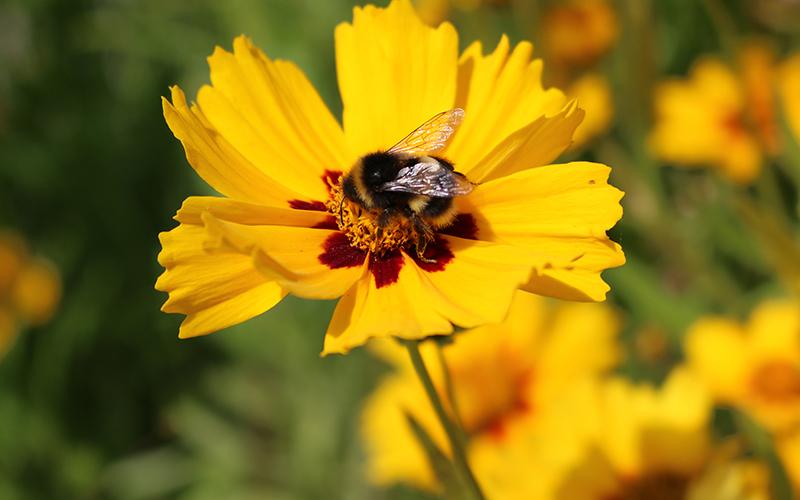
Johnsons of Whixley's ‘buzz’ for bees just got a lot bigger.
BALI Registered Affiliate member Johnsons of Whixley’s ‘buzz’ for bees keeps getting bigger with another 200,000+ honey bees joining the current apiary with numbers expected to reach over 800,000 in the height of summer.
During Bee’s Knees Week 8-14 July followed by National Honey Month in September, Johnsons is raising awareness of the importance of bees in the food production process. Not only do they pollinate a third of our food, but they also pollinate 80% of flowering plants with some crops such as blueberries being 90% dependent on bee pollination. Honey produced by bees also contributes millions of pounds to our economy.
During a single pollen collection trip a honey bee will visit 50 to 100 flowers making Johnsons main 50-acre site the perfect location for bees, another 100 acres owned by Johnson’s is adjacent to the onsite apiary and with bees being known to travel over 2,000 miles to collect pollen all of their sites will be used to collect pollen.
Johnsons got in touch with Harrogate and Ripon Beekeepers’ Association back in Spring 2017 when a small number of beehives were introduced to the main 50-acre site. Since the success of the installation beekeeper Keith has increased the number of bees each year.
Keith Simmonds, Vice President of Harrogate and Ripon Beekeepers’ Association, said:
“The mild winter has meant more colonies of bees have successfully survived through to Spring. A mild Spring will ensure that a good number of strong hives help the UK honey bee population to recover from the losses of recent times. Everyone can do their bit to help by ensuring that their garden or planting scheme includes something for the bees.”
Johnson's Marketing and Sales Coordinator Eleanor Richardson said,
“With the recent study that announced the decline to a third of the British wild bee and hoverfly population, it’s great to be doing our bit for the environment and bee community. Our nursery is the perfect location for bees and it’s great to provide a home for up to 800,000 of them.”
